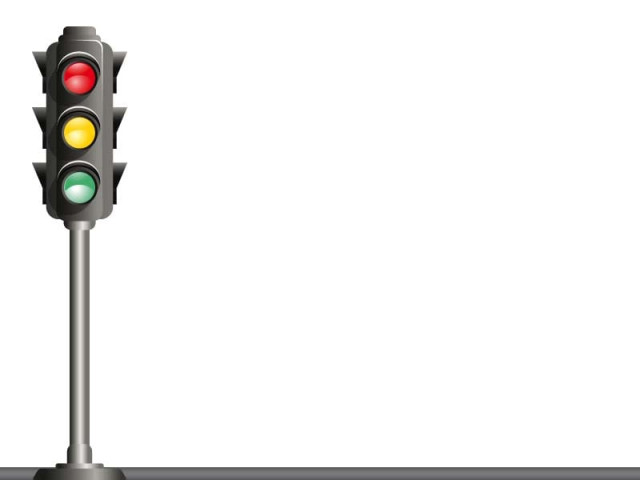Inequality of law: The traffic police’s fancy for ‘model roads’ in the red zone
Officials justify that areas surrounding CM House and Governor House should be more orderly.

DESIGN: TALHA KHAN
The traffic police hold a penchant for what they call the ‘model roads’ in the South zone. Unsurprisingly, this becomes quite evident to anybody who lives in Karachi.
The enforcement and implementation of traffic rules and regulations is taken care of only in the ‘important parts’ of the city. These ‘important parts’ include the few roads of the South zone which are, in traffic police lingo, the ‘model roads’ of Karachi.
The five intersections, Fawwara Chowk, Do Talwar, Teen Talwar, Sindh Club and Ocean Chowk, Sharae Faisal and the different roads leading to Defence and Clifton are the model roads; the rest of the city’s roads are the traffic regulators’ stepsons.
Proper marking of lanes and constables donning the new grey uniform are the salient features of these special roads. Traffic personnel are deployed round the clock and no one dares to violate the traffic laws due to, as South SSP Tanveer Odho puts it, a “zero tolerance for bribery in the area”.
The female traffic police wardens are yet another feature restricted to these model roads.
According to the traffic sub-inspector of the South zone, Tufail, it is very important for the traffic regulators to enforce the law in the red zone as Chief Minister House, Governor House, the Sindh Assembly, the Supreme Court Karachi registry and the Sindh High Court buildings were all situated in these areas.
“How can we not implement the law in these areas?” he asked. “We have zero tolerance for bribes in the red zone.”
What public transporters have to say
Khan Coach Services manager Zahir shed light on the different ‘phases’ of the traffic police.
“Earlier in the month of March, there was a bout of crackdown against the carriers on the rooftop of the buses on which commuters usually travel,” he said, adding that such crackdowns are for a month or two before everything goes back to normal. “Now we have reached an understanding with the police that they won’t fine us for carrying passengers on the rooftop in the morning.”
However, he added that abiding by all the traffic rules once they enter the red zones is also a part of their understanding. “When our Khan Coaches cross the main tower in Saddar, the conductors ask all the passengers travelling on the rooftops to get inside the bus,” he explained. “If we don’t do this, we are fined immediately.”
Marwat Coach conductor Jawed said that the intensity of getting fined differed in different parts of the city. “For example, when our vehicle reaches Drigh Road, we make sure that no passenger is on the rooftop as that is [the point] where the traffic police checking gets tougher.”
The commuter’s version
People who travel in public buses agree with the version of the transporters.
According to Owais Muhammad, a regular commuter of the Super Hasan Zai Coach, whenever the coach crosses Bahadurabad, the driver puts the brakes.
“The conductor then makes sure that all the passengers are inside and none on the rooftop,” he said, adding that if the conductor forgets to do so, the driver always get a ticket on Sharae Faisal.
Why the discrimination?
According to SSP Odho, Karachi is suffering from a serious shortage of traffic police personnel. “Out of the 3,200 police force for the traffic, only 1,100 give duty shift-wise for as many as 35 million vehicles plied on the roads,” he said.
He said that in such a situation, their foremost priority is to maintain the flow of traffic in the South zone. “Most of the diplomatic and high-profile movements are observed in this zone,” he said.
According to Odho, the South zone has traditionally been a very secure zone in Karachi. “We have never allowed the eight-seat Qingqi rickshaws to be plied on the model roads and red zones,” he said. “We want to maintain it as a polished area. Such Qingqi rickshaws and public buses, with passengers travelling on the top of the rooftops, do not leave a very good impression on foreign diplomats.”
Published in The Express Tribune, April 7th, 2015.



















COMMENTS
Comments are moderated and generally will be posted if they are on-topic and not abusive.
For more information, please see our Comments FAQ